#exogamic
Explore tagged Tumblr posts
Text
I think Logan wants Roman in relationships to get over (what Logan perceives as) his weirdness (I don't think he feels guilty about that, like the father in Festen who also told Christian off because he was unable to consummate with women, but he's definitely aware of it since Roman was little -to add to this, imo Logan never molested Roman or any of his kids but it's iffy, the show clearly wants you to consider it-) and to give him grandchildren, whereas Kendall is useless for him in relationships because he's not fertile and, grandchildren ruled out, he wants him knocked down a peg or two to show him who's the boss in the company and the family, so he doesn't want him flaunting his masculinity and getting all happy and big-headed.
Though maybe he doesn't care that much either way and it's optics because he didn't ask Roman about Tabitha until the dick pic happened, and Ken was married for years and sure, Logan must have been overbearing but Ken was problematic as a husband and as a father. Then there's Naomi Pierce who was a member of a rival family, he obviously hated that... Very Romeo and Juliet of them lol.
Jennifer was considered a bimbo, just someone to have fun with, because she wasn't educated enough and she was nobody. While Roman had Logan in mind when choosing his girlfriend, Kendall didn't.
In any case, he wanted the power to decide over his kids' lives. It's all very narcissistic dad keeping control of his kids to make sure none of them believe they're better than him or can replace him before it's time, and Kendall was much more dangerous than Roman, who never wanted the power in the first place (no exhibition of independence anywhere to be seen, no dominating stance, no real aspirations no take over Logan). Besides, per the show itself and the scripts, Kendall is a narcissist too and Roman has BPD and he's clearly codependent, which tells you a lot about how they all relate to each other too.
Shiv's case is a bit different. Knowing her chauvinistic family would never take her seriously she decided to defy her control-freak, conservative dad by pursuing a career in progressive politics, but she was baited back by being included in the company (which meant being empowered in the family) and then she was kept down by being ignored again, treated like a token item, etc.
Connor doesn't even count because he has no active associations with Waystar and he's an obedient son.
Logan was nothing if not somebody who knew how to play the game. There could only be an alpha dog in his company/family, and if you wanted to be one, you had to take him out or leave.
#The son in Festen allegedly used to have an incestuous relationship with his dead sister fwiw but he's exogamically impotent lol#Otoh Logan respects men who are killers and can destroy him. But they are never in his realm#Anyway I saw a post about this and I didn't want to hijack it with my own thoughts on the matter#Family
4 notes
·
View notes
Photo
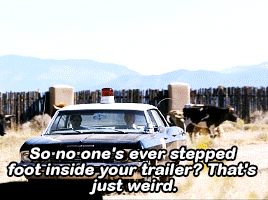
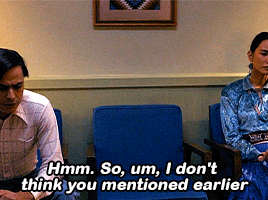
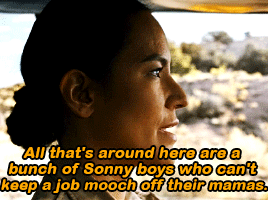
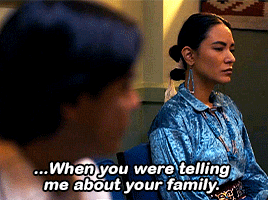



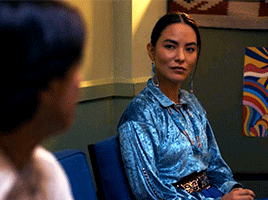
For the Navajo people, introducing yourself is about more than just telling someone your name, it's about sharing where you come from.Where you "come from" isn't just the location of where you live, but more what defines you. For the Navajo people that comes from their clans.The Navajo people's way of life revolves around kinship or K'é, which arises from familial and clan relationships. (x)
When it comes to clans in Navajo, there are a few things to keep in mind. For one, Navajo clans are exogamous, meaning members of the same clan cannot marry one another. Additionally, each clan is associated with a particular animal, plant, or geographic feature, which is considered to be that clan’s ” protector.” (x)
#dark winds#dark winds amc#darkwindsedit#tvedit#filmtv#otpsource#tvdaily#bernadette manuelito#jim chee#jim x bernadette#jessica matten#kiowa gordon#mine*#so all I'm hearing is Chee pretty much proposed to her
493 notes
·
View notes
Note
Are Craster and his daughters supposed to be the inevitable endpoint of the noble families in Westeros?
statements like these always grind my gears. although patriarchal family structures do produce and enable father-daughter incest, it is both insulting to the specific experience of incestuous abuse and just factually nonsense to say father-daughter marriage is the “inevitable endpoint” - well, clearly it isn’t inevitable, because it does not happen in the great majority of aristocratic westerosi families! it also just doesn’t seem to understand how westeros’ aristocratic class works - exogamous marriage is actually key, and also a site of patriarchal violence that is misunderstood if you imagine father-daughter incest as some ur-violence in this way. universal father-daughter marriage as “inevitable endpoint” would lead to the collapse of the political system as it currently exists and it does not illuminate the suffering of characters like cersei or lysa. craster and his family are not like exactly westerosi families; it’s an important detail that craster has to move beyond the wall and all the dictates of westerosi law and custom to enact his extreme endogamy. of course at the same time that doesn’t mean it’s truly antithetical, as shown by the fact the night’s watch - an institution that theoretically enforces the seven kingdoms’ laws - looks the other way to craster marrying and raping his daughters and making human sacrifices of his sons because craster is useful to them. you might say his family is a dark shadow image of westerosi families (which rape daughters for patriarch satisfaction and consume sons for power), but it isn’t tidily equivalent on a factual basis and its thematic place in the story is more complicated than some didactic lesson about “inevitable endpoints.”
20 notes
·
View notes
Note
no i agree incest would warp someone's psyche but the way i've seen it disscused, as the targaryens being incapable of regular family relationships and being normal about their family members is not true and as you pointed out we also see incest among the other westerosi houses. it's another things that gets treats as unique to the targaryens when the only difference is how (some) forms of incest are sanctioned/allowed. incestues abuse and inappropriate relationships exist among other houses, you don't need to look any furher than jaime and cersei.
cw: csa mention
yes, i'm familiar with that line of analysis. the general argument is that they're born into a family that practices institutionalised incest, which means they're raised to view siblings as potential sexual partners, something that complicates the possibility of having 'normal' familial relationships—which is correct, but i also agree that you can't make sweeping claims about the psychology of every single targaryen using this reasoning. and people identify this as a problem unique to the targaryens because they're not considering what enables and motivates their incest practices, there's some gesturing at it as a cyclical issue but ultimately they're also being framed as sexual deviants, individually pathologised - which is not all that different from attributing child sexual abuse to the spectre of the pedophile, as a rare perversion and not something that is enabled by the way children are rendered structurally (legally, economically) disempowered. and the reason people construct a unique pathology for the targaryens is because they don't view them as actors within westeros's feudal patriarchy just like every other great house, they view them as valyrians. which is why their motivations for everything they do in the books have to be sourced back to the freehold. and i won't deny that there's a special narrative thread of family magic and curse running through their line (my brothers dreamed of dragons too, and their dreams killed them, every one.), you are being invited to look at them through that lens, that there's a specific burden and tragedy but also awe and glory in being a targaryen. they've socially constructed a divine self-mythology because they're kings and your kings are also your gods, but it's a politically convenient lie they consciously tell their subjects (there are very few targaryens who actually, wholeheartedly believe in the superiority of their own valyrian race), because ultimately they're just as human as any of them and just as subject to and motivated by social forces.
so why is the incest happening, because marriage is a way of forging political alliances and in turn accumulating military power during both times of peace and war. military power for targaryens means dragons, you don't give the lannisters a dragon (it goes deeper than that, dragons are their symbols of legitimacy and authority you simply cannot give another house a dragon, it undermines their entire image as sovereigns), so you keep your dragonrider daughters within the family structure—just as daughters from other great houses are commodities on the marriage market, exchanged for political power and the propagation of bloodlines. materially there is no difference between the two situations (there's a good point re avenues of escape from abuse just not being there in incestuous targaryen marriages, but i've covered it here and concluded that it's also not really available for exogamous marriages), because this is how westeros's feudal patriarchy works. marriages between very young girls and much older men are normalised, we see it happen multiple times in the main series but there's this line in mystery knight which has stuck with me, because it was a detail casually dropped with no objections attached by dunk, the second closest thing to a true knight in the books: "The girl was fifteen and freshly flowered, her lord husband fifty and freshly widowed."
in westeros everyone is match made from birth, if not immediately from birth then well before the age of majority (catelyn was betrothed to brandon at twelve), being uniquely horrified by the targaryens also matchmaking their kids at a young age does not make sense to me. "they are raised into" yes well eleven year old sansa was also raised into internalising this: "I love him, Father, I truly truly do, I love him as much as Queen Naerys loved Prince Aemon the Dragonknight, as much as Jonquil loved Ser Florian. I want to be his queen and have his babies." and i brought up the greyjoy brothers because that's a clear case of non targaryen incestuous abuse made possible because of the way power flows from the patriarch, to whom the younger sons defer to, are sworn to obey—the same power hierarchy that enables aerion's sexual abuse of egg. the forces at play here are the same, yet people will seek to identify the latter as the consequence of the targaryens' uniquely fucked up child rearing practices and psychology.
all marriages in westeros are founded on those principles, because the family structure hinges on gender ideology and the patriarchal ownership of women and children. the targaryens are doing what everyone else is also doing, doesn't mean it's not bad, doesn't make it excusable, but it's important to recognise the way it's culturally encouraged across all of westeros. and since this begun as a discussion of the hotd ask, i'll also add that incest is a narrative tool and can obviously be used beyond imparting moral lessons about Incest Bad, asoiaf is clearly interested in incest as a mode of patriarchal domination (among other things, see jaimecersei), but hotd is exploring both the intergenerational trauma caused by it and daemon and rhaenyra's marriage resembling a relationship wherein they both find mutual gender affirmation through one another (what is said about the trans reading). again, people will be really resistant to the latter reading, but it's undeniably there. and the discomfort with it will not make it go away!
30 notes
·
View notes
Note
Why do you think Aemma Arryn never claimed a dragon? She was half Targaryen and when she married she was officially part of the Targaryen family, so there wouldn’t be any dynastic/political reasons for her not to have one. Do you think it was cultural differences from being raised in the Vale, health issues from her constant pregnancies, or worries about Viserys being seen as weak because his wife had a dragon and he didn’t (a la Rhaena and Aegon), or a combination of all of these reasons?
Number one, Aemma spent her first 11 years of life not just as an Arryn, raised in the Vale, but specifically as an Arryn of the Vale whose connection to House Targaryen was ancestral and dynastic rather than contemporary or draconic. Because Daella died almost immediately after giving birth to Aemma (thanks to her shithole husband Rodrik), Aemma almost certainly experienced no direct Targaryen influence in her infancy or childhood. To the extent young Aemma understood her place in the Targaryen family tree, she may only have known that she was the daughter of a younger daughter of King Jaehaerys and Alysanne, a cousin of the royal line more akin to whatever paternal relations she herself may have had among the families of the Vale (through prior generations of Arryn daughters’ marriages) than to a core member of the Targaryen royal family (and indeed, that extended Targaryen connection would go unmentioned, somewhat historically inexplicably, when Rhaenyra made her claim). Consequently, Aemma may not have expected or believed she was entitled to a dragon in the same way, say, her cousins Daemon and Rhaenys, and to a lesser extent her future husband Viserys - all growing up at court as male-line Targaryen princes (and a male-line Targaryen princess) - may have done.
Number two, there was very little precedent in the royal Targaryen family for its princesses being married to Westerosi aristocrats, much less how dragons might be distributed to a princess' children in such a scenario. While such marriages do seem to have happened to some extent prior to the Conquest - see for example that claimant at the Great Council of 101 AC, who cited his descent from “a younger daughter [of Gaemon Targaryen] and the petty lord she had married” - the royal Targaryens before the Dance celebrated very few exogamous marriages for Targaryen princesses. Princess Rhaenys was the only case where the children of a Targaryen princess and a non-Targaryen had dragons of their own, and this situation was quite specific: Rhaenys, who herself was a dragonrider and had a significant claim to the throne, had married not just a Valyrian relation, but the most powerful Valyrian relation the Targaryens had, at the acme of his own authority and magnificence. Conversely, while Rodrik Arryn was certainly no hedge knight or commoner, he did not boast any of the same Valyrian credentials Lord Corlys did; too, Daella herself had no dragon of her own, and so no experience on dragonriding to encourage in her daughter (even if she had lived to do so, which of course she did not).
Number three, once Aemma married Viserys, she seems to have had little opportunity to pursue dragonriding, even if she herself had wanted to (which we have no sense of - more on that below). While Viserys did apparently wait two years - massive eyeroll - to consummate his marriage to Aemma, she was still pregnant a number of times between 95 AC (when approximately the marriage was consummated) and 105 AC (the year she died, following the birth of the short-lived Prince Baelon), with “several miscarriages and the death of one son in the cradle over the course of her marriage” (plus the births of Princess Rhaenyra and that same Prince Baelon). If we don’t know exactly how many times Aemma was pregnant (as we do with, say, Queen Rhaella, and can speculate with Lysa Arryn), I would guess that Aemma was pregnant roughly at least six times in these 10-odd years, at least three of which pregnancies went to term and ended in the births of children - quite an exhausting and physically taxing schedule for Aemma. Whatever her interest level in actually having a dragon of her own, Aemma was likely not in a position physically to try to claim a dragon in these years.
Of course, the problem inherent to the conceit of Fire and Blood Volume 1 - and I mentioned this the other day - is that we’re almost always kept at arms length from the interior thoughts and feelings of any given character. This problem is compounded for Aemma by the author’s unfortunate penchant of using some of his female characters as little more than walking wombs, who exist solely to give birth to more important characters. Aemma might have been given a name (more than can be said for some of her narrative sisters), but her role in the story is limited to being married off as a prepubescent child bride, enduring seemingly (if not actually) annual pregnancies (including more than one pregnancy loss), and then dying in childbirth. Did Aemma have any sense of her own (at least theoretical) draconic inheritance? Or was she, as GRRM via Gyldayn frustratingly portrays her mother, infantilized to the point of almost total inaction, unwilling to engage in any pursuits except marriage and childbearing? We’ll never know, because neither the format of F&B nor, I would guess, GRRM himself seems interested in the answer.
(Again, I need to emphasize that I am not talking about That Other Show and will block any discussion of That Other Show.)
82 notes
·
View notes
Note
How are we not supposed to root for the Targaryens when Daenerys performed a miracle of resurrection and is using her power to free enslaved people across Essos ? Even though we are told in the prologue of the first book that the true enemy is the cold and Daenerys is a dragon queen who birthed fire-breathing creatures ?
Daenerys is the ONLY character that is using her power to benefit more than just themselves or their family’s power. The emphasis on her fertility is not because the Targaryens are doomed to die, it’s just another aspect of the way she consistently defies reality and achieves the impossible, Mirri Maz Dur told her a flowery statement about the nihilistic situation Daenerys had been cast in but Daenerys rejected it, birthing dragons and healing herself.
Thank you, anon, for the Mirri thing, I esp appreciate this point bc I've last talked abt how Mirri attempts to deceive Dany concerning her son's death in the womb, how Mirri tries to "gaslight" & confuse her and very likely could have also tried to make sure she at least instills a seed of doubt in Dany even after death HERE.
And I agree, this is one of the early instances of Dany defying the expectations and machinations of both out-world and in-world; as the once-ozymalek/Phoenix-Ashes once said, in a conventionally written fantasy work, Dany would have been long-killed perhaps in her first married night or by Viserys or in childbirth. And despite her brother's and Illyrio Mopatis' and yes, even Mirri's, plotting and intentions for her, she manages to defy them all and survive but also work towards her people's wellbeing and safety anyway she can. Her brothers & husband die for her rise instead of the other way around. Through that fire that birthed her dragons, she is also passing through a inner transformation she herself triggered & orchestrated after doing away with her enemies, Mirri one of the first, turning Mirri's deception into something useful for herself even though it was never her intent to use her husband for said dragons. It's truly a beautiful and well written thing!
As for her ancestors, I favor them bc they simply are the more interesting party whoever you put beside them and that's because they are fleshed out for Dany's sake to contextualize her arc and character and role in Planetos history, past, present and future. While being very entertaining.
Truly, I think some people also hate the Targs as a group/collective bec EITHER bc:
they just cannot get behind who they see as enthusiastic/complacent participants of feudalism/exploitative structures when Dany is right there to be the opposer to any sort of exploitation, reevaluating and working against the legitimacy of absolute for its own sake
they hate how they make the injustices of Westerosi feudalism that much more obviously unjust in myriad of ways
Of course some Dany stans dislike or hate the Targs before her, and that makes sense precisely as you say abt her being the only one who is not trying for power either for themselves or for their house at the expense (or simply not centering) of lower classed people. Participating in their exploitation. I don't have anything to really say about that except for sometimes that comes at the expense of understanding the value of some Targs's stories--like with Rhaenyra's particular histiographical and personal experiences with sexism and how while she herself is nothing like her, her experiences and the themes there do connect with Daenerys and other F&B women [acertifiedmoron]:
within the culture of westeros all women are a commodity, valued entirely for their reproductive capabilities, exchanged by men to maintain the male line. this is the very basis of patriarchy. which is why the real evil here is the institution of marriage. yes, we've established that targaryen women are trapped within their endogamous marriages, but noblewomen in exogamous marriages also have very little hope for recourse. they don't have anywhere to go but pray for their family's aid (which happens rarely or never, as i've pointed out) or their husband's death. this is not me going to bat for incest, just that there really is no significant material difference between targaryen incestous marriages and other westerosi marriages. but to speak of the former as a unique kind of evil, one has to tacitly go to bat for normal westerosi marriages. and that obscures what the text is communicating. the targaryens are not an abberation. westerosi society as a whole is built on gendered violence perpetuating systems of gendered oppression. rarely is anyone not brutalising their daughters. the targaryens do it by keeping daughters within the family structure for consolidating dragon power and the other houses do it by trading their daughters for political power. both cases involve using young girls to bolster male power
#asoiaf asks to me#mirri maz duur#daenerys stormborn#daenerys targaryen#daenerys stormborn's characterization#agot characterization#the evil targaryens#asoiaf#fire and blood#agot#defending Daenerys Stormborn Khaleesi Targaryen
32 notes
·
View notes
Text
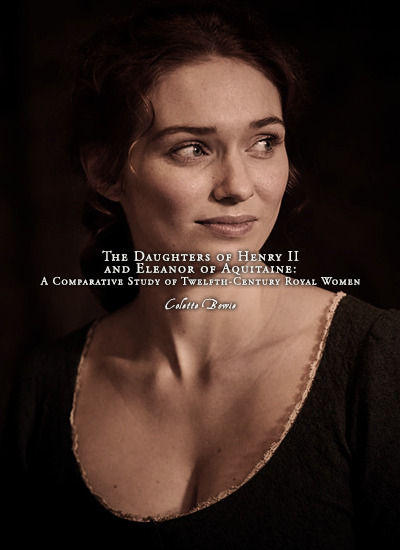

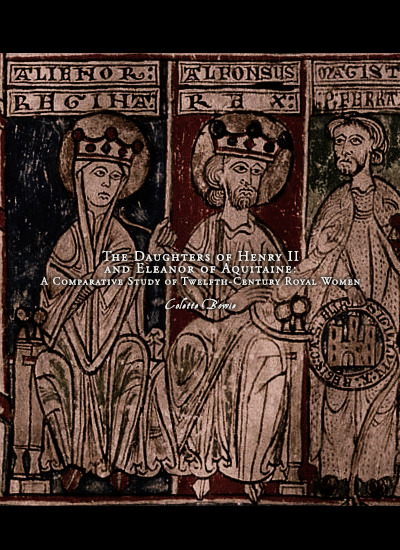
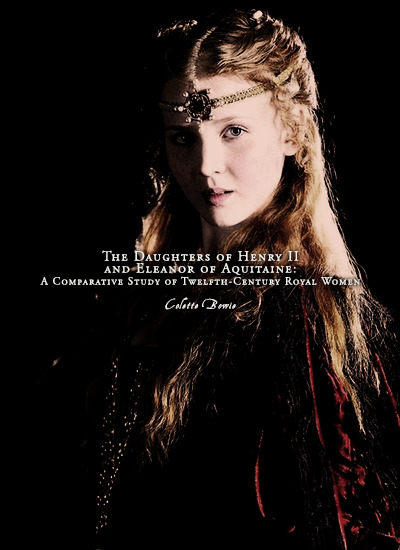


Favorite History Books || The Daughters of Henry II and Eleanor of Aquitaine: A Comparative Study of Twelfth-Century Royal Women by Colette Bowie ★★★★☆
This study compares and contrasts the experiences of the three daughters of Henry II and Eleanor of Aquitaine. The exogamous marriages of Matilda, Leonor, and Joanna, which created dynastic links between the Angevin realm and Saxony, Castile, Sicily and Toulouse, served to further the political and diplomatic ambitions of their parents and spouses. It might be expected that their choices in religious patronage and dynastic commemoration would follow the customs and patterns of their marital families, yet the patronage and commemorative programmes of Matilda, Leonor, and Joanna provide evidence of possible influence from their natal family which suggests a coherent sense of family consciousness. To discern why this might be the case, an examination of the childhoods of these women has been undertaken (Part I), to establish what emotional ties to their natal family may have been formed at this impressionable time. In Part II, the political motivations for their marriages are analysed, demonstrating the importance of these dynastic alliances, as well as highlighting cultural differences and similarities between the courts of Saxony, Castile, Sicily, and the Angevin realm. Dowry and dower portions (Part III) are important indicators of the power and strength of both their natal and marital families, and give an idea of the access to economic resources which could provide financial means for patronage. Having established possible emotional ties to their natal family, and the actual material resources at their disposal, the book moves on to an examination of the patronage and dynastic commemorations of Matilda, Leonor and Joanna (Parts IV-V), in order to discern patterns or parallels. Their possible involvement in the burgeoning cult of Thomas Becket, their patronage of Fontevrault Abbey, the names they gave to their children, and finally the ways in which they and their immediate families were buried, suggest that all three women were, to varying degrees, able to transplant Angevin family customs to their marital lands. The resulting study, the first of its kind to consider these women in an intergenerational dynastic context, advances the hypothesis that there may have been stronger emotional ties within the Angevin family than has previously been allowed for.
#historyedit#history books#litedit#house of plantagenet#english history#medieval#french history#european history#women's history#history#nanshe's graphics
74 notes
·
View notes
Text
Three of Glit's sisters have had children, so Megatron would actually be an uncle if he ever put the ring on it.
Leozack and Lyzack are grown, and Viridian and Soundblaster are also grown, but Improv, Catfish, Sparkthief, and Predaking are very definitively kids.
(None of his brothers have had children so far.
And he's not sure he that Stalker and Fangry ought to be parents. Not that he'd have a vote or be asked his opinion if they decided to.)
That indeed more dire than the fear of being helpless with a small bitlet who is just as inclined to get into trouble as all of Glit's sisters' kids.
But if he's cool with forging Glit can build them a robot six-year-old and bring them to life with one of the frozen sparks he stole from Grindcore.
Adoption is Also Good.
#Megatron (UT) | mastermegatron#the funny thing about cougaraiders is that they are very exogamous and rarely make more of themselves#so far it has just been viridian and improv#catfish is feline but also some kind of boat
4 notes
·
View notes
Text
the make-up of the current cornick family, with all the age disparities and complicated pasts, makes for such confused familial roles. i don't think interpreting each character's actions according to very traditional scripts of mother-father-children is the most useful choice. for instance, reading leah as bran's daughterwife sheds a lot of light onto the specifics of her antagonism with charles. since she was mentally a teenager when she met him and bran took on a role of guide and authority to please for both of them, in some ways their relationship growing up would have been more similar to that of siblings than to a parental one.
charles has expressed he was initially pained at leah's inability to adopt a maternal role with him and i am sure this disappointment still colors his feelings towards her. and it's not that step-mothers can't hate children from a previous marriage: that particular flavour of displease is certainly present in leah's feelings, as charles is a constant reminder of leah's inferiority to blue jay woman. but their competition for bran's attentions feels also very fraternal at times. they were raised simultaneously to hold almost complementary positions within the pack, bran's left and right hand. the hierarchy between them is always confused and shifts depending on the situation. they hold reciprocal jealousy for how bran treats the other and you get a feeling that, secretly, each would want a bit of what the other has. leah bran's love and appreciation, that he would see her as a person instead of an intercheangable body to calm his beast. charles to be treated like someone to keep close and protect, not a useful tool sent into the world to get smashed until it breaks. their vision is limited by the shadow bran projects: they both feel somehow mistreated compared to the other, but the truth is bran makes tools out of both for different purposes and puts both in the way of different harms. he raised them as extentions of himself and shaped them to fulfill his political and personal needs, charles as his soldier and leah as his wife. neither experienced his actual unconditional love nor the possibility to develop fully independent personhood. charles's situation presents some venues of respite because, as he is a man and "only" a son, he can still find love in an exogamic relationship and he could technically branch out on his own. as bran is leah's entire world, her options are much more restricted.
13 notes
·
View notes
Text
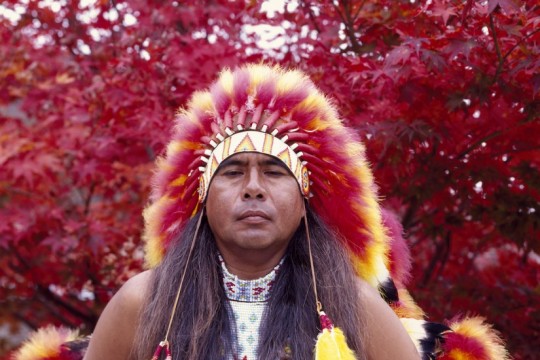
Why Do So Many Americans Think They Have Cherokee Blood?
The history of a myth.
BY GREGORY D. SMITHERS
“I cannot say when I first heard of my Indian blood, but as a boy I heard it spoken of in a general way,” Charles Phelps, a resident of Winston-Salem in North Carolina, told a federal census taker near the beginning of the 20th century. Like many Americans at the time, Phelps had a vague understanding of his Native American ancestry. On one point, however, his memory seemed curiously specific: His Indian identity was a product of his “Cherokee blood.”
The tradition of claiming a Cherokee ancestor continues into the present. Today, more Americans claim descent from at least one Cherokee ancestor than any other Native American group. Across the United States, Americans tell and retell stories of long-lost Cherokee ancestors. These tales of family genealogies become murkier with each passing generation, but like Phelps, contemporary Americans profess their belief despite not being able to point directly to a Cherokee in their family tree.
Recent demographic data reveals the extent to which Americans believe they’re part Cherokee. In 2000, the federal census reported that 729,533 Americans self-identified as Cherokee. By 2010, that number increased, with the Census Bureau reporting that 819,105 Americans claimed at least one Cherokee ancestor. Census data also indicates that the vast majority of people self-identifying as Cherokee—almost 70 percent of respondents—claim they are mixed-race Cherokees.
Why do so many Americans claim to possess “Cherokee blood”? The answer requires us to peel back the layers of Cherokee history and tradition.
Most scholars agree that the Cherokees, an Iroquoian-speaking people, have lived in what is today the Southeastern United States—Virginia, West Virginia, Kentucky, North and South Carolina, Georgia, and Alabama—since at least A.D. 1000. When Europeans first encountered the Cherokees in the mid–16th century, Cherokee people had well-established social and cultural traditions. Cherokee people lived in small towns and belonged to one of seven matrilineal clans. Cherokee women enjoyed great political and social power in the Cherokee society. Not only did a child inherit the clan identity of his or her mother, women oversaw the adoption of captives and other outsiders into the responsibilities of clan membership.
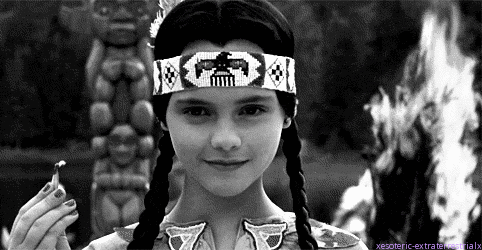
As European colonialism engulfed Cherokee Country during the 17th and 18th centuries, however, Cherokees began altering their social and cultural traditions to better meet the challenges of their times. One important tradition that adapted to new realities was marriage.
The Cherokee tradition of exogamous marriage, or marrying outside of one’s clan, evolved during the 17th and 18th centuries as Cherokees encountered Europeans on a more frequent basis. Some sought to solidify alliances with Europeans through intermarriage.
It is impossible to know the exact number of Cherokees who married Europeans during this period. But we know that Cherokees viewed intermarriage as both a diplomatic tool and as a means of incorporating Europeans into the reciprocal bonds of kinship. Eighteenth-century British traders often sought out Cherokee wives. For the trader, the marriage opened up new markets, with his Cherokee wife providing both companionship and entry access to items such as the deerskins coveted by Europeans. For Cherokees, intermarriage made it possible to secure reliable flows of European goods, such as metal and iron tools, guns, and clothing. The frequency with which the British reported interracial marriages among the Cherokees testifies to the sexual autonomy and political influence that Cherokee women enjoyed. It also gave rise to a mixed-race Cherokee population that appears to have been far larger than the racially mixed populations of neighboring tribes.
Europeans were not the only group of outsiders with which 18th-century Cherokees intermingled. By the early 19th century, a small group of wealthy Cherokees adopted racial slavery, acquiring African slaves from American slave markets. A bit more than 7 percent of Cherokee families owned slaves by the mid-1830s; a small number, but enough to give rise to a now pervasive idea in African culture: descent from a Cherokee ancestor.
In the early 20th century, the descendants of Cherokee slaves related stories of how their African forebears accompanied Cherokees on the forced removals of the 1830s. They also recalled tales of how African and Cherokee people created interracial families. These stories have persisted into the 21st century. The former NFL running back Emmitt Smith believed that he had “Cherokee blood.” After submitting a DNA test as part of his 2010 appearance on NBC’s Who Do You Think You Are, he learned he was mistaken. Among African Americans, as among Americans as a whole, the belief in Cherokee ancestry is more common than actual blood ties.
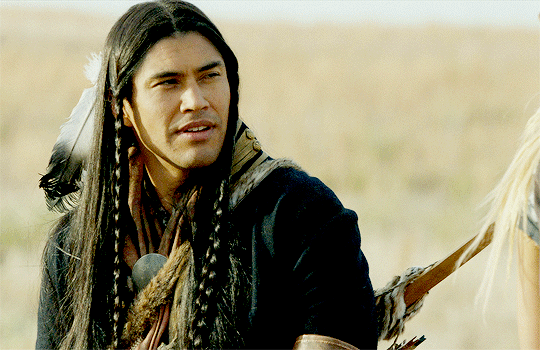
#african#afrakan#kemetic dreams#brownskin#africans#brown skin#afrakans#Ani'-Yun'wiya#tsalagi#Kituwah#cherokee#asian#asians#asian american#stop asian hate#filipino american#asian heritage month#aapi
25 notes
·
View notes
Text
Races: Dwarf
(p): Dwarves
Short and stout, of about four feet tall. Dwarven society predominantly exists in extensive, exogamous clans. If a new hold is formed, a new clan is as well. Dwarves ken single-step relations, father/mother, brother/sister, son/daughter, but consider all other Dwarves in their clan to be two steps away, the uncle/aunt/grandparent/niece/nephew/cousin level. As such, they do not have their own words for these, though acknowledge that others do have them. As they exist in clans, what Men consider to be professions for Dwarves is more considered to be chores performed around the hold.
Dwarves are expert miners and artisans. As such they do not value currency, per se. Sure, it is incredibly useful and necessary for survival, but to them money is simply a product of work and time, both things Dwarves have in abudance. They instead value favours. Many Men have gone deep into debt with Dwarves only to be significantly better off because of it, up to and including the Summer King. Dwarves will always ask for favours that one can provide, and always, to them at least, equal to what they provided. Demanding ruinous favours stops you from asking for favours in the future, and Dwarves view this as self-defeating, (though they will if they consider their own costs worth the trouble they cause you).
Dwarven holds will normally start as mines, and they dig up the side of a cliff, opening up windows for air and light. Their windows are normally left open, because they do not need to worry about warmth as Men do. Dwarves will ornately carve everything in their lives, including their holds, (though this will often take centuries to come to fruition).
Dwarves love their baths. Young holds will normally have two baths, one for each sex, but mature holds will normally have baths in each chambre. The bath is heated with a stone, that Dwarven Pyrans will force heat into. When traveling, Dwarves will bath in whatever river and stream presents itself, as they do not have to worry about the chill that Men would. Most races come to love Dwarven baths as Dwarves do. In truth, much of the Summer King's wealth and influence came from his seating of Dwarves baths across the Empire, and later back to Cynn, where they often became the core of a nacent city.
For magick, Dwarves apply external mana into objects imbuing them with powers. This can be seemingly eternal enchantments, or enchanting the explosion in their firearms as it is firing to change it's effects.
Dwarves are far stronger than Men and can live for over three centuries. Because of this they rarely work to make their own lives easier. This means that Dwarves often have tremendous knowledge and ability to make the lives of others easier, if you become friendly enough with them to help you.
Because of their long life, and their belief that more dangerous professions provides more social credit, male Dwarves die as often as Men, while female Dwarves rarely die of anything other than natural causes. This lead to tremendous amounts of spare females that Dwarves consider a standard and proper marriage to be one male to several females. When the husband dies, the wives grieve, often for decades, and then move on. Widows rarely have to worry for their survival, as the remainder of the clan will take care of them. In truth, any clan they are friendly with will take care of them, at the most this will be considered a favour. At the least this will be considered hospitality.
Dwarves view a friend staying with them as an invitation to stay with them. The reverse is also true, and if you are in an area and do NOT stay in a friendly hold, that can and often is viewed as telling them they are not welcome. The females take care of their males. Males offer hospitality to visitors. If a female offers hospitality to a male from another clan, this is viewed as flirting. Despite it's banal apperance, Dwarves take this with extreme severity, to the point that a male might have to keep his cup covered for nearly an entire meal, as letting an, (often persistent), female fill his cup, is considered flirting in return.
Dwarven females believe that if they aren't getting enough attention from their husband. It's their fault. They just need to put more effort into it. The nacent Summer King, (the fabled Lion of Cynn; once nothing more than a simple knight), had a maid who proved that you simply have to work harder if you want to get a husband. The Lion called her Dragon, for her force, (and her voice). Dwarves, by contrast, call her a Demon. It encouraged female Dwarves to try even harder than they had before when trying to marry a husband.
The traditional form of marriage for Dwarves has a male relative introduce the female to her prospective husband. She does what she can to act as his wife. If he already has wives, they often will not make this easy, unless they especially approve of her. At a certain point, the marriage becomes a betrothal. And once betrothed, the male takes the female to bed, and upon the first seeding, they are married. This can be troublesome for those of other races, (or clanless Dwarves), who do not know the rules, and might have trouble telling exactly what part of the courtship they are. Dwarves react the same way a man would act if a female has her betrothral broken off. Before this line, however, at any time, the male can send the female away, and the relationship is broken off. Sometimes this might happen at what other races would consider an inappropriate time, but the usual response is that Dwarves are as robust as they seem. The females won't take it as an insult, but it will normally prevent a relationship from forming between them in the future.
Partially from wanderlust, and partially from the intensity of their own marriages, males Dwarves will often spend a year or more away from his clan and family. Trading, exploring, learning, etc.
Dwarves are considered adults at 50, at which point it is common for an older male relative to take them on a journey into the lands of another races. One of the older males, (it's impossible to recruit one Dwarf), will take personal responbility for their safety, always watching over them.
Dwarves have classes, which is not a social class, but a unique set of skills and affinities for certain jobs. It does not matter what they are currently doing, they are always considered to have their class. All male Dwarves are considered to be warriors. Females can if they choose, (which they rarely do). Classes are treated like professions. While professions might not be for everyone, they are prestigious, and those who do not find one often find themselves adrift. Not all Dwarves are fit to be a thane, of course. The class is only applied to those that fervently pursue it. Those of casual interest, (by Dwarven standards), are not considered of the class.
Artisan: As economically essential as mining is to not just the hold, but entire kingdoms. Dwarves take artisanry seriously. Males take up the more physical crafts, while females take up the more dextrous ones. Though, this has to be taken from a Dwarven perspective, as beating dough into submission is typically done by their females.
Bee Keeper: This might seem strange, but Dwarves have natural allergies to bees. Bees are essential to agriculture, and honey also one of the greatest foods. Bees, (and other jacketed things), can cause a Dwarven force to rout.
Dragoon: They are experts at firearms, able to enchant the explosion in-progress, allowing them to turn a firearm into something that can launch them into the air, creates plumes of flame, or even explosions.
Mining (m): One of the most essential jobs for Dwarf-kind, especially as most Dwarven holds start as naught but mines.
Nurse (f): One of the most essential classes, the keeping of the young, and old, and infirm. They wield healing magics, while being skilled at soothing, of saying just what is needed to say to, of aiding those injured to not just heal, but recover.
Pyran (m): Dwarves love their baths. Their baths usually have a bath stone that is manually heated by a Pyran, whom channels a lot of heat into the stone. Other pyromancers can heat it, but it still a ridiculous amount of exercision to force heat into cold stone.
Shepherd: Shepherds are essential, as sheep and goats are one of the best resource any race can have. It requires a combintion of leadership and pacivity that Dwarves find most difficult. It also requires them to spend much time away from their hold, which most Dwarves find most queer.
Skald: The keepers of their words. Dwarves speak many languages, and never speak their language in front of other races. Even Men who marry into Dwarven holds, although this is as much because it takes 50 years to get decent at it. The tongues of men take far less. They maintain the libraries, act as advisers, and wield Word Magick. These words are all Dwarven, leading to few if anything that can possibly ken their existence.
Viking (m) / Valkyrie (f): They ride the wind and channel the storm. Dwarves do not channel magick through their body, but directly from the environment into objects. Because of this, they can channel lightning into objects. Channeling lightning through the body risks striking the heart, (for despite it's power, lightning is such a fickle thing), which will instantly kill most of the Greater Races. While they cannot fly, they can shunt wind against their bodies, cloaks, and shields. They can use lightning to quicken their limbs, (as the lightning will not seek it's way into their hearts).
Fantasy Counterpart: Scottish / Nordic
Dwarves and Men
Dwarves view Men as a young race that won't have the chance to get old. But, unlike the long-lived Elves, the Gnomes that live slightly longer than Men, and Fauns that live shorter lives, Men do interesting things. They build, they explore, they fight over petty grudges, (the best kind). They can marry into a Dwarven clan, (and several, in fact), though are given only small concessions, such as understanding why they have trouble remembering every fact of every hold they are friends with. Dwarves understand that only the first wife is considered wife among Men, legally, but and that all others are considered concubines, legally. They still expect men to treat them all as wives. Dwarven females who marry men were normally viewed as Mannish ahead of time. It's only a scandal as everyone claims to have seen it coming.
Dwarves use Mannish, and related terms, to mean feminine. They consider swords to be feminine. This means they will lightly insult men they come across by calling them Mannish. When they've earned their respect, the Dwarves will often simply avoid calling them Mannish, and stop making reference to their sword. Men will often take this as as insult instead of the compliment it is meant as.
Dwarves have tremendous physical and intellectual abilities, with fields of scholarship not even imagined by Men, but Dwarves rarely find any need to use this. If a Man can get a Dwarf to aid them, it will be to death. A team of Dwarven bombadiers can change the fate of a siege. Their understanding of economics is so powerful that one of the reasons the Empire never enslaved, as they did with all other non-Mannish races. The other, of course, being that Dwarves often control mountain passes, and once they dig themselves into a hold, they are extremely difficult to remove.
Note: As of this point, only the Summer King has ever invited Dwarves to form a hold in Mannish. They normally form on their own, and once they are established, are too useful and difficult to remove to do anything about. Empire is the Mannish trait, and as such, most lands occupied by most species, are under the auspices of the local Mannigh kingdom. This includes Dwarves.
6 notes
·
View notes
Text
In Hindu culture, the term gotra (Sanskrit: गोत्र) is considered to be equivalent to lineage. It broadly refers to people who are descendants in an unbroken male line from a common male ancestor or patriline. Generally, the gotra forms an exogamous unit, with marriage within the same gotra being regarded as incest and prohibited by custom.
According to the Brihadaranyaka Upanishad 2.2.4, Kashyapa, Atri, Vasistha, Vishvamitra, Gautama Maharishi, Jamadagni and Bharadvaja are seven sages (also known as saptarishi) and Jambu Maharishi is another sage (also known as Renuka, who belongs to Kashyapa). The progeny of these eight sages are declared to be gotras. This enumeration of seven primary & one secondary gotra seems to have been known to Pāṇini. The offspring (apatya) of these seven are gotras and others than these are called gotrāvayava.
2 notes
·
View notes
Note
ok so i adore the pfurr dynamics and all that stuff soooo: i was wondering if you had ideas for how things are handled in each clan specifically?
I see pfurr dynamics to be part of the cultural substrata common to all Clans so cultural differences between them are not really a thing! There's WindClan's policy of enforced monogamy during the Onestar era but that was swiftly reversed for a return to status quo.
I imagine that compared to other feral cat colonies in-universe that it is a fairly unique arrangement while still conforming to a trend of cats favoring social structures that are non-monogamous and matrilineal. Therefore all other arrangements will involve some form of privileging maternal kin.
If anyone handles it differently it's probably SkyClan due to their lengthened isolation which led to both internal evolution and adoption of foreign practices/elements thereof. (Maybe a gender-segregated camp? To reflect more accurately the real dynamics of a feral cat colony? Thoughts, thoughts, thoughts.)
The Sisters, The Tribe of Rushing Waters, and BloodClan, and all others would also have their own unique arrangements but they'd deemphasize the role of fathers/male role models a lot more. I feel like probably at least one of the latter two is exogamous, (prefers marriage to outsiders) and matrilocal (husband moves in with wife's matrilineal family).
To be honest with you, other than the Clans and the Sisters I don't really care much about other groups and their social arrangements. So if y'all have ideas feel free to talk about them with me more, but I'm very much not thinking about them much without outside prompting.
3 notes
·
View notes
Note
to answer your call for insane personal secrets: ive been in a full contact lesbian relationship with my mother all my life and no one else knows and i could never tell anybody even if i wanted to because shes famous in her field and also because shes really hot and i never want to move out. plus ive been abused every time ive been with any other sexual partners anyways so ive just given up on exogamous outreach. shes really annoying sometimes though and she doesnt ever even make me dinner -___-
holy shit wow i can't even imagine that. im very sorry you've been treated that way by your other partners and i hope if you ever want to reach out to anyone in your life you will be listened to. i sincerely hope you're able to find happiness and peace with your life whatever form that may take for you and i pray for your physical and emotional wellbeing.
on a more lighthearted note it is very funny that what mothers have in common no matter their circumstances is 1) being annoying and 2) not cooking for their kids. you're going to do incest with her and she's not even going to make you dinner?
5 notes
·
View notes
Note
Hello hello! Just a question that appeared in my mind while reading ASOIAF: to what extent do you, generally, think houses from one region marry into one from another region? Not counting personal friendships and alliances made under the veil of war, since these are spontaneous in origin. Just, how common do you think they are?
It’s worth pointing out that in the geopolitical context of Westeros, marriages within realms, or between relatively nearer neighbors, often make sense. These neighbors often share dynastic and socio-political histories, religious beliefs, and cultural values, potentially more easily facilitating marriage alliances between such families. Additionally, marriages between closer neighbors can allow for more immediate geopolitical or dynastic gains - the trading of valuable nearby territory, say, the fealty of a truculent bannerman, or the inheritance of another family’s seat. So I would say as a general rule, most aristocratic marriages in Westeros probably happen between families within the same realm. The point is difficult to quantify, admittedly, without a real sense of the full ancestries of virtually any family save Houde Targaryen; yet I think it’s fair to look at the family trees of the Lannisters and Starks provided in TWOIAF, for example, or the most recent generations of House Tyrell, and say that intraregional marriages are the norm rather than the exception.
However, none of this is to say marriages between families from separate kingdoms (pre-Conquest) or realms within the Iron Throne’s kingdom (following the Conquest) do not happen, or that there would be no advantages or sense to such marriages. While the Starks, for example, have usually (at least in the last roughly two centuries) married within the North, both Beron Stark and his granddaughter Jocelyn married the Vale-based Royces (the latter perhaps “encouraged” to do so by uncle Artos), while Willam married Melantha Blackwood (to say nothing of the wartime or quasi-wartime exogamous marriages of Cregan Stark and the most recent two Stark lords) - families who boast old First Men credentials (and, for the latter, a devotion to the old gods). Too, while GRRM often avoids multi-realm holdings within the same families, this sort of geopolitical arrangement does happen: see, for example, the marriage of Eleanor Mooton and Dickon Tarly, or (in perhaps a bit of a reversal of this circumstance) the betrothal between Tion Lannister and the Rowan daughter. There can also be instances where a ruling authority, either locally or more nationally, encourages aristocrats to marry outside their realms: Gyldayn notes, for example, that Rhaenys and Visenya “brokered many marriages between noble houses from the far ends of the realm, in hopes that such alliances would help tie the conquered lands together and make the seven kingdoms one”, while I think Quellon Greyjoy may have done the same to promote his anti-Old Way policies (with Quellon himself marrying a Piper and Harras Harlaw’s father marrying a Serrett). These are far from the only reasons cross-continental marriages occur, obviously, only a small sampling of possible explanations.
Sometimes as well, GRRM introduces cross-realm marriages without much in the way of explanation. We don’t know, for example, why the Westerlander Elinor Costayne was initially married to the Stormlanders Theo Bolling, or why the Riverlands Prentys Tully married the Westerlands Lucinda Broome, or why Ned’s aunt Branda Stark married the Stormlander Benedict Rogers. That doesn’t mean there was no or could not have been any geopolitical analysis behind these marriages, only that the author didn't explain these marriages specifically.
45 notes
·
View notes
Text
"...historical fact that the demolition of the problem of totemism began in the United States...and that it was tenaciously prosecuted there. To be convinced that this was not a merely local development, we need only consider rapidly the development of ideas in England. / In 1914, one of the most famous theoretical writers on totemism, W. H. R. Rivers, defined it by the coalescence of three elements: (1) a social element, viz., the connection of an animal or vegetable species, or an inanimate object, or perhaps a class of inanimate objects, with a group defined by the society, typically with an exogamous group or clan; (2) a psychological element, viz., a belief in a relation of kinship between members of the group and the animal, plant, or thing, often expressed in the idea that the human group is descended from it; (3) a ritual element, viz., a respect for the animal, plant, or thing, typically manifested in a prohibition on eating the animal or plant, or on using the object, except on certain conditions."
📚 Claude Levi-Strauss - Totemism, 1963.
3 notes
·
View notes